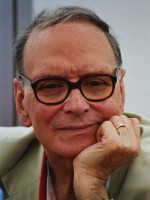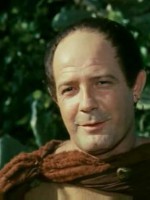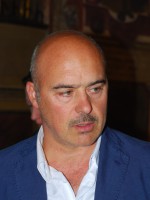Roberto Faenza is a Actor, Director and Scriptwriter Italien born on 21 february 1943 at Turin (Italie)

Roberto Faenza (born 21 February 1943) is an Italian film director. Born in Turin in 1943, Faenza received a degree in Political Science and a diploma at the Centro Sperimentale di Cinematografia.
He made his directing debut in 1968 with the international success, Escalation, a film that describes the different sides of power through the relationship between a middle-class father and his hippie son. Immediately after that he directed H2S, an angry apology of the 1968 movement, seized two days after its release and not distributed since. Upon this sequestration he travelled to the United States to teach at the Federal City College of Washington DC.
In 1978 he directed Forza Italia!, a ferocious satire on the power of the Italian Christian Democrat party covering thirty years of Italian political history. The film was withdrawn from the theatres on the day Aldo Moro, President of the Christian Democrats, was kidnapped, and remains banned for over 15 years. Aldo Moro being the one who will end his life recommending (in his handwritten memoirs found in the den of the Red Brigades in via Monte Nevoso in Milan) to see the film “if one wants to realize the recklessness of his fellow party members”.
In 1980 Faenza chose the Italian Communist Party as subject matter with Si salvi chi vuole. Considered as a politically incorrect director, he was forced to work outside of Italy to be able to find financing: in 1983 he filmed Copkiller in New York with Harvey Keitel, Nicole Garcia and the leader of the Sex Pistols, Johnny Rotten.
His activities are not limited to cinema: author of essays and books (best known among them: Senza chiedere permesso, Il malaffare, Gli americani in Italia), upon his return in Italy he starts teaching Mass Communication at Pisa University. After Copkiller he became inspired by literature as a source of stories.
In 1990 he directed The Bachelor, based on a short story by Arthur Schnitzler with a wide cast of profiled actors: Keith Carradine, Miranda Richardson, Kristin Scott Thomas and Max von Sydow. In 1993 he directed Jonah Who Lived in the Whale starring actress Juliet Aubrey for which he was awarded the David di Donatello for Best Director. The film was entered into the 18th Moscow International Film Festival where it won the Prix of Ecumenical Jury.
Two years later another novel (this time by Antonio Tabucchi) was the source: Sostiene Pereira, Marcello Mastroianni’s last Italian film, the latter awarded with a David di Donatello as Best Leading Actor. In 1997 he directed Marianna Ucria based on the novel La lunga vita di Marianna Ucria by Dacia Maraini. It was entered into the 20th Moscow International Film Festival.
In 1999 he directed The Lost Lover, inspired by the bestseller by Abraham B. Yehoshua about the ongoing clash between Jews and Palestinians. In 2003 he received international success with The Soul Keeper, based on the burning passion between Carl Gustav Jung and his young Russian patient Sabina Spielrein.
His most recent films are: Come into the Light, about the life of Pino Puglisi, the parish priest killed in Palermo by the mafia in 1993, played by Luca Zingaretti (Nomination European Academy Award (EFA) as Best Director 2005; David Giovani Best Film Award; Flaiano Best Leading Actor Award and Audience Award for the Best Film; Best Leading Actor Award at the Karlovy Vary International Film Festival 2005; San Fedele Best Film Award); The Days of Abandonment, inspired on the novel by Elena Ferrante, with Margherita Buy, Luca Zingaretti and the musician Goran Bregovic. I Vicerè based on the 1894 novel by Federico De Roberto was released in 2007.
His last film (2012) is Someday This Pain Will Be Useful to You, shot in New York and based on the novel by Peter Cameron, starred Ellen Burstyn and Marcia Gay Harden. Also starring in the film was Toby Regbo, Peter Gallagher, Deborah Ann Woll, Lucy Liu and Stephen Lang.
Source : Wikidata
Roberto Faenza

He made his directing debut in 1968 with the international success, Escalation, a film that describes the different sides of power through the relationship between a middle-class father and his hippie son. Immediately after that he directed H2S, an angry apology of the 1968 movement, seized two days after its release and not distributed since. Upon this sequestration he travelled to the United States to teach at the Federal City College of Washington DC.
In 1978 he directed Forza Italia!, a ferocious satire on the power of the Italian Christian Democrat party covering thirty years of Italian political history. The film was withdrawn from the theatres on the day Aldo Moro, President of the Christian Democrats, was kidnapped, and remains banned for over 15 years. Aldo Moro being the one who will end his life recommending (in his handwritten memoirs found in the den of the Red Brigades in via Monte Nevoso in Milan) to see the film “if one wants to realize the recklessness of his fellow party members”.
In 1980 Faenza chose the Italian Communist Party as subject matter with Si salvi chi vuole. Considered as a politically incorrect director, he was forced to work outside of Italy to be able to find financing: in 1983 he filmed Copkiller in New York with Harvey Keitel, Nicole Garcia and the leader of the Sex Pistols, Johnny Rotten.
His activities are not limited to cinema: author of essays and books (best known among them: Senza chiedere permesso, Il malaffare, Gli americani in Italia), upon his return in Italy he starts teaching Mass Communication at Pisa University. After Copkiller he became inspired by literature as a source of stories.
In 1990 he directed The Bachelor, based on a short story by Arthur Schnitzler with a wide cast of profiled actors: Keith Carradine, Miranda Richardson, Kristin Scott Thomas and Max von Sydow. In 1993 he directed Jonah Who Lived in the Whale starring actress Juliet Aubrey for which he was awarded the David di Donatello for Best Director. The film was entered into the 18th Moscow International Film Festival where it won the Prix of Ecumenical Jury.
Two years later another novel (this time by Antonio Tabucchi) was the source: Sostiene Pereira, Marcello Mastroianni’s last Italian film, the latter awarded with a David di Donatello as Best Leading Actor. In 1997 he directed Marianna Ucria based on the novel La lunga vita di Marianna Ucria by Dacia Maraini. It was entered into the 20th Moscow International Film Festival.
In 1999 he directed The Lost Lover, inspired by the bestseller by Abraham B. Yehoshua about the ongoing clash between Jews and Palestinians. In 2003 he received international success with The Soul Keeper, based on the burning passion between Carl Gustav Jung and his young Russian patient Sabina Spielrein.
His most recent films are: Come into the Light, about the life of Pino Puglisi, the parish priest killed in Palermo by the mafia in 1993, played by Luca Zingaretti (Nomination European Academy Award (EFA) as Best Director 2005; David Giovani Best Film Award; Flaiano Best Leading Actor Award and Audience Award for the Best Film; Best Leading Actor Award at the Karlovy Vary International Film Festival 2005; San Fedele Best Film Award); The Days of Abandonment, inspired on the novel by Elena Ferrante, with Margherita Buy, Luca Zingaretti and the musician Goran Bregovic. I Vicerè based on the 1894 novel by Federico De Roberto was released in 2007.
His last film (2012) is Someday This Pain Will Be Useful to You, shot in New York and based on the novel by Peter Cameron, starred Ellen Burstyn and Marcia Gay Harden. Also starring in the film was Toby Regbo, Peter Gallagher, Deborah Ann Woll, Lucy Liu and Stephen Lang.
Usually with
Filmography of Roberto Faenza (17 films)
Actor
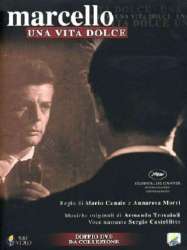
Marcello, una vita dolce (2006)
, 1h38Genres Documentary
Actors Marcello Mastroianni, Claudia Cardinale, Anouk Aimée, Sergio Castellitto, Ursula Andress, Lina Wertmüller
Roles Himself
Rating68%





Une vie vécue avec douceur, ce doux regard et ce sourire narquois, cette légendaire paresse. Aujourd’hui encore, dire Mastroianni ou Marcello évoque une époque : un monde fait de bravoure, de beauté, de charme, de gentillesse. Au travers d’interviews de ses proches et de ses collaborateurs, d’extraits de films et d’images d’archives, ce documentaire narré par Sergio Castellitto veut raconter un homme qui a été le plus grand acteur italien et a vécu de façon extraordinaire avec le succès, en pensant souvent qu’il n’était peut-être qu’en train de rêver.
Director

Anita B. (2014)
Directed by Roberto Faenza
Genres Drama, Historical, Romance
Actors Robert Sheehan, Eline Powell, Nico Mirallegro, Andrea Osvart, Antonio Cupo, Jane Alexander
Rating56%






Directed by Roberto Faenza
Origin Italie
Genres Drama, Comedy, Comedy-drama
Themes L'adolescence, Films about children
Actors Toby Regbo, Marcia Gay Harden, Lucy Liu, Ellen Burstyn, Siobhan Fallon Hogan, Peter Gallagher
Rating56%





Un été à New York, James Sveck (Regbo), un jeune homosexuel qui se cherche, rêve d'avenir...
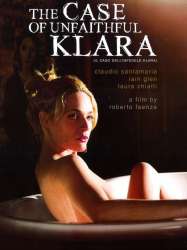
The Case of Unfaithful Klara (2009)
Directed by Roberto Faenza
Genres Drama, Thriller, Romance
Actors Claudio Santamaria, Laura Chiatti, Zuzana Fialová, Kierston Wareing, Sabina Beganović, Pavlína Němcová
Rating46%






I Vicerè (2007)
, 2hDirected by Roberto Faenza
Origin Italie
Genres Drama, Historical, Romance
Actors Andrea Rivera, Lando Buzzanca, Cristiana Capotondi, Assumpta Serna, Magdalena Grochowska, Sebastiano Lo Monaco
Rating61%





Uzeda, a Sicilian family faithful to the Bourbon kings, with the Unification of Italy in 1861 and the rise to power of Giuseppe Garibaldi and Vittorio Emanuele II, begins to lose his power, although Sicily remains in the hands of Prince Giacomo (Giacomo Uzeda).
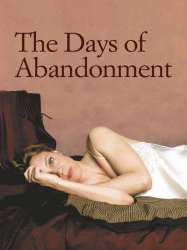
The Days of Abandonment (2005)
Directed by Roberto Faenza
Origin Italie
Genres Drama
Actors Margherita Buy, Luca Zingaretti, Goran Bregović, Sara Santostasi
Rating58%





Olga (Buy), literary translator, wife and mother of two is suddenly abandoned by her husband (Zingaretti) for a younger woman. With this she enters into a painful lapse that turns into despair that brings her to sleep and food deprivation. She encounters a neighbour musician (Goran Bregović) that moves something in her. After a descent into hell and eventual rise from despair, Olga lives an insight that makes her realize that she was not losing her mind for the lost love but discovers the meaning of losing her dignity and being imprisoned in a single role, which she must break in order to enjoy life.

Come Into the Light (2005)
, 1h29Directed by Roberto Faenza
Origin Italie
Genres Drama, Historical, Crime
Actors Luca Zingaretti, Corrado Fortuna
Rating70%





L'histoire est issue de la vie du prêtre catholique Pino Puglisi tué par la Mafia sicilienne en 1993.

The Soul Keeper (2003)
Directed by Roberto Faenza
Genres Drama, Biography, Historical, Romance
Actors Iain Glen, Emilia Fox, Craig Ferguson, Caroline Ducey, Joanna David, Jane Alexander
Rating66%





Printemps 1905, Sabina Spielrein est internée pour hystérie et anorexie par ses parents. Le jeune médecin Carl Gustave Jung décide de prendre en charge la patiente, et d'expérimenter sur elle une nouvelle méthode révélée par un certain Sigmund Freud: la psychanalyse. De cette rencontre naît une histoire bouleversante, faite d'amour et de passion, qui traverse les moments les plus forts, mais aussi les plus terribles du siècle.
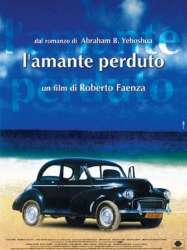
The Lost Lover (1999)
Directed by Roberto Faenza
Genres Drama
Actors Ciarán Hinds, Juliet Aubrey, Stuart Bunce, Clara Bryant, Phyllida Law
Rating54%






Marianna Ucrìa (1997)
, 1h48Directed by Roberto Faenza
Origin Italie
Genres Drama
Actors Emmanuelle Laborit, Bernard Giraudeau, Roberto Herlitzka, Laura Morante, Philippe Noiret, Laura Betti
Rating60%





Au début du XVIII siècle, dans une ville sicilienne, le duc Signoretto amène sa nièce de douze ans, Marianna Ucria, qui, sourde-muette, communique à travers un tableau noir, à assister à une pendaison, espérant que l'exécution pourrait créer un choc et lui rendre la parole. Maria, force sa fille à épouser le vieux cousin de son mari, Pietro, avec qui Marianna aura trois enfants au cours des quatre années suivantes.
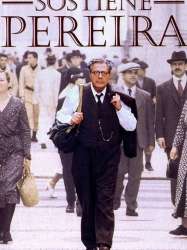
Pereira Declares (1995)
, 1h44Directed by Roberto Faenza
Origin Portugal
Genres Drama
Themes Political films
Actors Marcello Mastroianni, Joaquim de Almeida, Daniel Auteuil, Nicoletta Braschi, Stefano Dionisi, Marthe Keller
Rating70%





In Lisbon, during the António de Oliveira Salazar's Estado Novo dictatorship, Pereira (Marcello Mastroianni), a journalist that works in the culture section of a newspaper, discovers the real dark side of the regime when he meets and helps an anti-fascist young man Monteiro Rossi (Stefano Dionisi).

Look to the Sky (1993)
, 1h40Directed by Roberto Faenza
Origin Italie
Genres Drama, Historical
Actors Jean-Hugues Anglade, Juliet Aubrey, Francesca De Sapio, Đoko Rosić
Rating66%





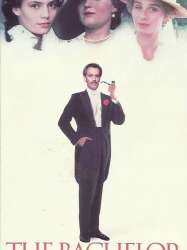
The Bachelor (1990)
Directed by Roberto Faenza
Genres Drama, Romance
Actors Keith Carradine, Miranda Richardson, Kristin Scott Thomas, Max von Sydow, Mario Adorf, Mari Törőcsik
Rating63%





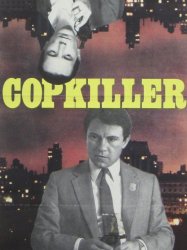
Copkiller (1983)
, 1h57Directed by Roberto Faenza
Origin Italie
Genres Thriller, Crime
Themes Films about sexuality, Bisexuality-related films, LGBT-related films, LGBT-related films, LGBT-related film
Actors Harvey Keitel, Sylvia Sidney, John Lydon, Leonard Mann, Nicole Garcia, Carla Romanelli
Rating55%





Fred O'Connor et son collègue Bob, inspecteurs corrompus de la Brigade des Stupéfiants se sont payés un magnifique appartement. Mais un jeune homme mystérieux va remettre en question leurs habitudes bien rodées...

Si salvi chi vuole (1980)
Directed by Roberto Faenza
Genres Drama, Comedy
Actors Claudia Cardinale, Gastone Moschin
Rating33%





 Connection
Connection
